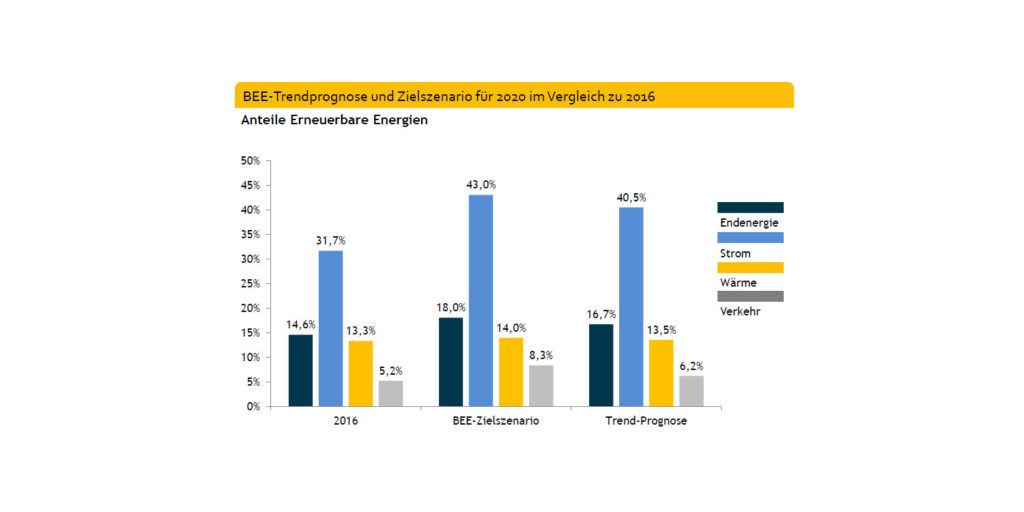Germany has always been pointed out as a leader in the energy transition. According a report from renewable energy association Bundesverbands Erneuerbare Energie (BEE), however, the country could miss its 2020 EU target for the deployment of renewable energies, which sets at 18% the expected share of renewables in Germany’s energy mix.
The association believes, in fact, that if the current growth trend is maintained, the share of solar, wind and biomass could increase from 14.6% currently to a maximum of 16.7% by 2020.
The BEE, however, has provided a target scenario that shows how Germany could potentially reach its target. In order to fill the gap, the country’s power, heat and transport sectors must produce an additional 22 TWh per year. Overall, 111 TWh will have to be added, with 70 TWh coming from the power sector. while the heat and transport sectors will have to account for 16.4 TWh and 24.6 TWh, respectively. Across the three sectors, renewables will have to deliver at least 75 TWh during the period.
As for the development of solar, the BEE said that under the current growth rate new PV installations by 2020 are expected to reach 1,750 MW in 2017, while for the following three years the new solar capacity is forecast to be in the amount of 2,000 MW, 2,500 MW and 3,000 MW, respectively. This would not be enough for the achievement of the target, BEE said, and after installing 1.75 GW of new PV power this year, Germany should add 3 GW in 2018, 5 GW in 2019 and 7 GW in 2020, if it hopes to reach its target.
Along with Germany; Ireland, Luxembourg, the Netherlands and the UK could also miss their respective 2020 targets, while the other 23 EU countries have already complied with their commitments. The share of renewables in Germany’s power sector increased by just 0.2% to 31.7% last year, due to a slower than expected development of renewables in the heat and transport sectors, said the BEE’s provisional CEO Harald Uphoff.
This content is protected by copyright and may not be reused. If you want to cooperate with us and would like to reuse some of our content, please contact: editors@pv-magazine.com.




By submitting this form you agree to pv magazine using your data for the purposes of publishing your comment.
Your personal data will only be disclosed or otherwise transmitted to third parties for the purposes of spam filtering or if this is necessary for technical maintenance of the website. Any other transfer to third parties will not take place unless this is justified on the basis of applicable data protection regulations or if pv magazine is legally obliged to do so.
You may revoke this consent at any time with effect for the future, in which case your personal data will be deleted immediately. Otherwise, your data will be deleted if pv magazine has processed your request or the purpose of data storage is fulfilled.
Further information on data privacy can be found in our Data Protection Policy.